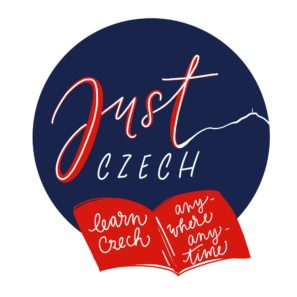Veronika Rogožanová
Jsem lektorkou češtiny a už téměř jedno desetiletí seznamuji cizince s krásami mého rodného jazyka, pomáhám jim překonávat jeho úskalí a motivuji je k jeho praktickému studiu a využívání v každodenním životě.
Jsem přesvědčená, že čeština je krásný a bohatý jazyk a cestu k jejímu osvojení si může najít každý, pokud se vydá hledat právě tu svoji, protože češtinu, podle mě, můžete studovat kdekoliv a kdykoliv.
I am a Czech language teacher and for almost a decade I have been introducing the beauty of my native language to foreigners, helping them to overcome its difficulties and motivating them to study it and use it in everyday life.
Czech is a beautiful and rich language that everyone can find a way to learn if they set their mind to it, because in my opinion, you can study Czech anywhere, anytime.
„Verčo, proč říkáte česky „kabelka“?“
Vždycky jsem se pohybovala v prostředí, kde byli nějakým způsobem přítomní cizinci. Ať už jsem se učila nějaký jazyk a byli jsme smíšená skupina, někam jsem cestovala nebo jsem měla brigádu někde, kam chodilo dost lidí. A taky mě vždycky bavilo jak používat cizí jazyk, tak se bavit s cizinci o tom, jak se určitá věc řekne v jejich jazyce. Ale zároveň nejenom o tom, jak se řekne, ale i jaké vidění světa se za tím skrývá. Protože, jak dobře víme, jazyk vypovídá mnohé o svých nositelích i jejich kultuře. A pak logicky přicházela na řadu i druhá strana mince, a to zprostředkování našeho českého pohledu na svět druhým.
„Naučíš mě česky?!“
Jelikož jsem studovala ruštinu a angličtinu a výuka jazyků byla v mém životě už po nějakou dobou zakořeněná, tato otázka se dostavila poměrně záhy. Moje odpověď zněla „Proč ne!“ A tak jsem se vyzbrojená gramatickou tabulkou a jednou z tehdy asi tří dostupných učebnic pro začátečníky jala vykládat, jak to v té češtině chodí, svým prvním studentům a zjistila, že mě to neuvěřitelně baví a naplňuje. A díky prvním úspěchům a hlavně zájmu mých studentů o češtinu se tento pocit ještě prohloubil.
„Není cizinec jako cizinec“
Jako velká část lektorů jazyků jsem i já prošla různými přístupy k výuce, motivaci a studentům celkově. Vyzkoušela si velké skupinové kurzy ve školách, komornější firemní výuku, individuály v knihovnách a kavárnách, kurzy pro děti, dospělé, rodiny i páry.
Potkala se se všemi možnými i nemožnými stereotypy jako „On je Slovan, tomu to půjde rychle“ nebo „Ta skupina Angličanů sice není stejná pokročilost, ale mluví stejným jazykem“ 🙂 A došla jsem k závěru, že ať jsme Slované či Neslované, čeština je náš první nebo pátý cizí jazyk, chceme si jít koupit rohlíky nebo přednášet na konferenci, všichni chceme mluvit v běžném životě a cítit se u toho dobře.

„Já se to nikdy nenaučím“ a touha po perfekcionismu
Jelikož slunce snad nikde nesvítí 365 dní v roce, dříve nebo později se dostaví období „kdy mi to vůbec nejde“. A je jedno, jestli se na začátku topíte v základech, nebo nemůžete překonat rozdílné rody u slov tolik podobných vašemu jazyku, nebo se na vás v prvních měsících nabalovaly znalosti takřka samy a najednou stagnujete a už to nejde tak rychle jako předtím.
Aby v těchto situacích nedocházelo k tomu, že to prostě vzdáte, osvědčilo se mi začít hledat novou cestu. Vyhovovala vám do té doby vaše osvědčená aplikace? Co to zkusit bez ní? Vyhovoval vám do teď dril? Co použít kontext? Za dobu, co učím, jsem si všimla, že hodně často strávíme více času přemýšlením nad tím, jak k tomu jazyku přistoupit, než ten jazyk doopravdy dělat. Takže místo několikadenního přemýšlení, jestli té zjednodušené četbě budu opravdu rozumět, nebude lepší to vyzkoušet? 😉
„A ty znáš někoho, kdo normálně mluví česky a není Čech?!“
Ano! Těch lidí je vcelku dost a jsem na ně všechny náležitě pyšná. Moc ráda slyším, když se potkám na lekci nebo mimo ni se svými studenty, a oni mi říkají novinky jako „začal jsem číst každé ráno krátké zprávy v češtině a zatím rozumím na 60 %“ nebo „chodím teď na pivo s kolegou z kanclu a mluvíme půl hodiny česky a půl hodiny italsky a naučila jsem se hodně nových slov“. A těší mě nejen jejich výsledek – že se naučili česky na úrovni, která jim vyhovuje a odráží jejich životní styl, ale hlavně to, že to nevzdali a nepřestali hledat způsob, jak toho cíle dosáhnout.
A pokud jste dočetli až sem, pravděpodobně to znamená, že byste tohoto cíle rádi dosáhli taky, ale možná zatím jenom nevíte jak. Pak jste tady správně 🙂 Just Czech je místo, kde s vámi chci sdílet svoje tipy, které jsem nasbírala za léta výuky a práce se širokou škálou cizinců a na základě jejich zkušeností se studiem češtiny. Protože hledání způsobu učení, který mi vyhovuje, je stejně důležité jako učení samo a za sebe vám můžu slíbit, že já s vámi ten váš rozhodně hledat budu!
Verča, why do you say "kabelka" in Czech?
I've always found myself in an environment where foreigners were present in some way. Whether I was learning a language with other students who were of various nationalities, I was traveling somewhere, or I was working in an environment that included a diverse set of people. I've always enjoyed learning new languages and being able to talk to native-speakers of that language about how to say different words in their language, as well as the history behind it. I find this fascinating because, as we know, language can tell us a great deal about its speakers and their culture.
Will you teach me Czech?!
With the combination of studying Russian and English for quite a while, teaching languages has been an integral part of my life for a long time, and it was not long before this question was asked to me. My answer was "Sure!, Why not?" So, armed with a grammar table and one of the three available textbooks for beginners, I began to explain how Czech works to my first group of students and came to find that I really enjoyed teaching my native language. Additionally, seeing the interest that my students took in learning Czech, as well as their success, made teaching even better.
"Not all foreigners are the same"
When first embarking on my journey of teaching Czech to foreigners, I practiced a variety of teaching methods to learn different ways to motivate and encourage my students. I also worked in different learning environments- everything from large group courses in schools, business courses, individual lessons, to more informal settings such as cafes and libraries. Additionally, my students have been a mix of age groups and skill levels.
During my time teaching, I have encountered numerous situations ranging from, "He is a Slav, this should be easy and it will go by quickly" to "The group of Englishmen are not all at the same level but they speak the same native language so it will still work”.. and the bottom line is, whether Slav or Non-Slav, whether Czech your first or fifth foreign language, whether you want to go buy rolls and be able to order cheese at the deli counter or lecture at a conference, the end goal is the same- we all want to be able to communicate in our day-to-day life without feeling apprehensive or nervous, we want to feel confident and good about it.
"I will never learn it" and desire for perfectionism
Since the sun does not shine anywhere 365 days a year, sooner or later there will be a period when you hit a wall in the language learning process. It could be at the beginning, and you struggle to simply pronounce the sounds, it could be that you can't overcome different genders of words that are similar to your native language, or it could be that your knowledge isn't building up as quickly as you had hope during the first few months.
To avoid giving up in these type of situations, I have always personally practiced looking for new possibilities and methods, just because one way does not work it does not mean you are at a stopping point. There are endless possibilities when it comes to learning languages, and often we spend more time thinking about how to approach that language than to actually just going out and using it. So, we just have to try 🙂
"And you know someone who normally speaks Czech and is not Czech ?!"
Yes! There are quite a few of those people and I am rightly proud of them all. I am very happy to hear when I meet my students at or outside the lesson, and they tell me things such as "I have started reading a short news report in Czech every morning and I understand 60%" or "I now go for a beer with a colleague from the office and we speak Czech for half an hour and Italian for half an hour and I learned a lot of new words ". I am pleased not only with their result - that they learned Czech at a level that suits them and reflects their lifestyle, but mostly that they didn't give up and didn't stop looking for a way to achieve their goal.
So, if you've read this far, it probably means that you would like to achieve this goal as well, but maybe you just don't know how yet.
Sounds like you? Well, you are in the right place 🙂 Just Czech is a place where I want to share with you my tips about studying and learning Czech that I have collected over the years from teaching and working with a wide range of foreigners. No one person is alike and this includes our learning styles. Using the insight from previous students’ experience in learning Czech, as well as my own experience learning languages, I know that finding a way of learning that suits you is just as important as the learning itself. I can promise that I will definitely look for yours with you! 🙂
